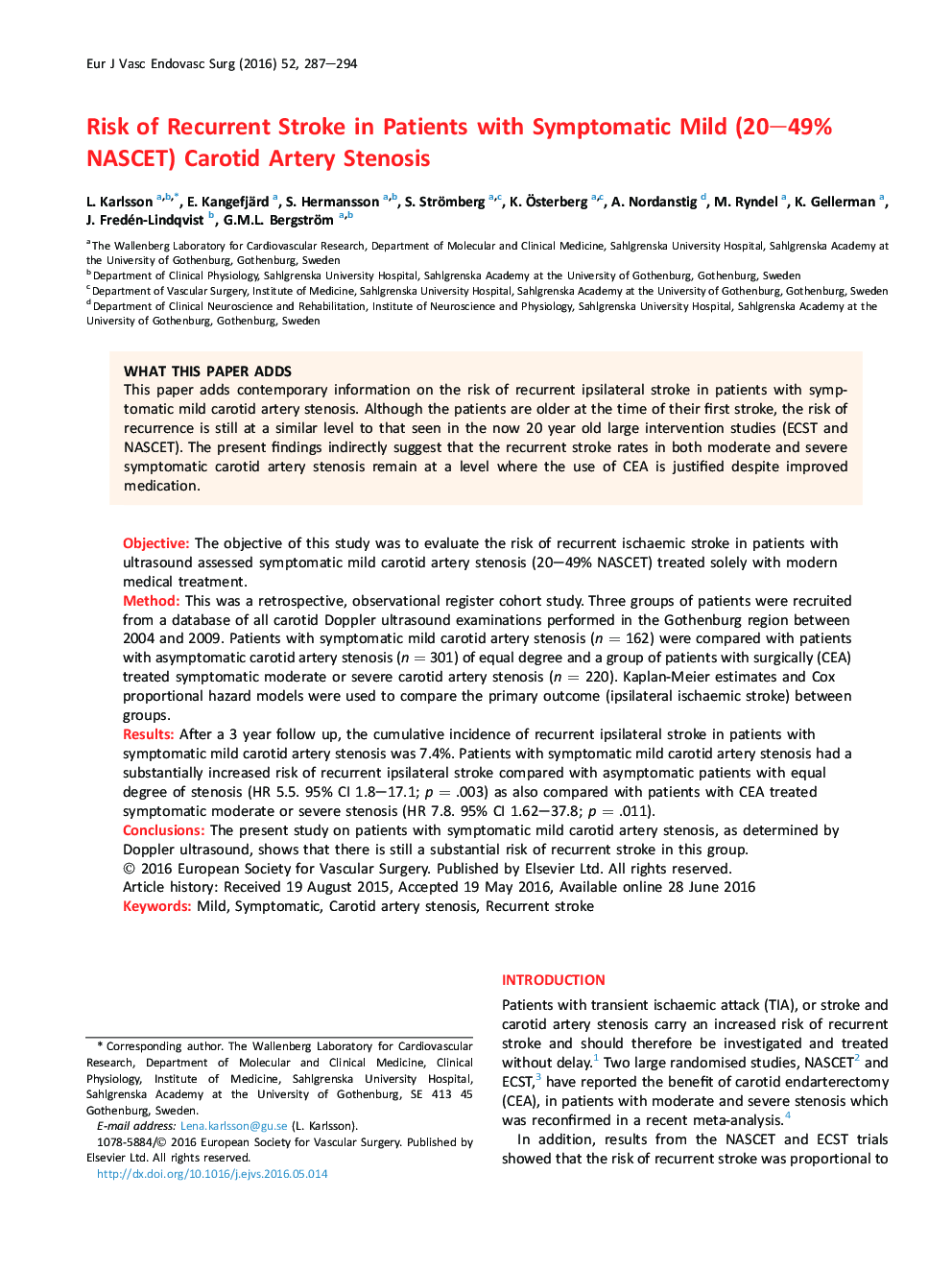| Article ID | Journal | Published Year | Pages | File Type |
|---|---|---|---|---|
| 2911541 | European Journal of Vascular and Endovascular Surgery | 2016 | 8 Pages |
ObjectiveThe objective of this study was to evaluate the risk of recurrent ischaemic stroke in patients with ultrasound assessed symptomatic mild carotid artery stenosis (20–49% NASCET) treated solely with modern medical treatment.MethodThis was a retrospective, observational register cohort study. Three groups of patients were recruited from a database of all carotid Doppler ultrasound examinations performed in the Gothenburg region between 2004 and 2009. Patients with symptomatic mild carotid artery stenosis (n = 162) were compared with patients with asymptomatic carotid artery stenosis (n = 301) of equal degree and a group of patients with surgically (CEA) treated symptomatic moderate or severe carotid artery stenosis (n = 220). Kaplan-Meier estimates and Cox proportional hazard models were used to compare the primary outcome (ipsilateral ischaemic stroke) between groups.ResultsAfter a 3 year follow up, the cumulative incidence of recurrent ipsilateral stroke in patients with symptomatic mild carotid artery stenosis was 7.4%. Patients with symptomatic mild carotid artery stenosis had a substantially increased risk of recurrent ipsilateral stroke compared with asymptomatic patients with equal degree of stenosis (HR 5.5. 95% CI 1.8–17.1; p = .003) as also compared with patients with CEA treated symptomatic moderate or severe stenosis (HR 7.8. 95% CI 1.62–37.8; p = .011).ConclusionsThe present study on patients with symptomatic mild carotid artery stenosis, as determined by Doppler ultrasound, shows that there is still a substantial risk of recurrent stroke in this group.
